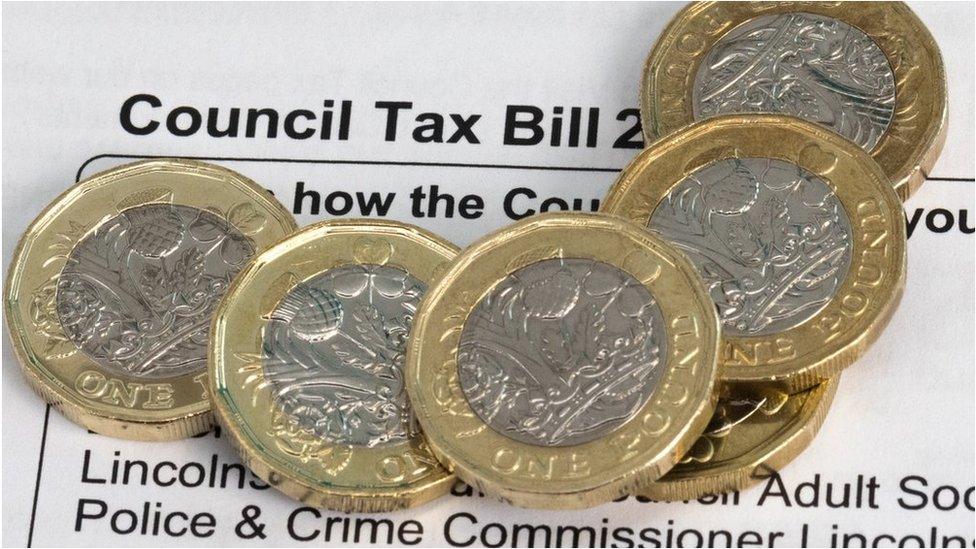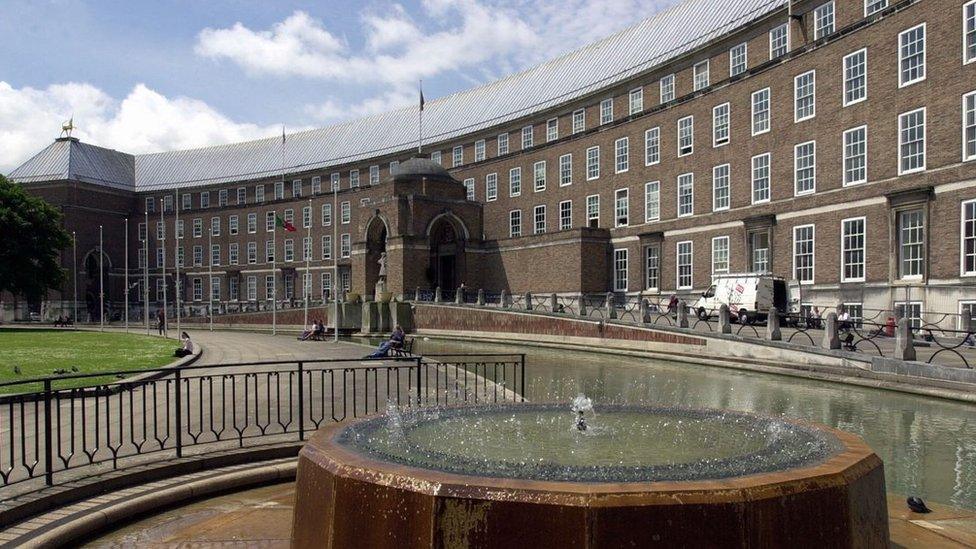Poorest homes in Bristol could pay more in council tax
- Published

Councillor Carla Denyer said the cuts could "make people homeless"
Budget cuts mean some of the poorest residents in Bristol might have to pay more in council tax.
Over 22,000 households currently qualify for council tax reduction, but the council wants to cut £3m from this scheme.
Bristol City Council will consult the public over the summer on the cuts.
Bristol is one of the last remaining councils in England to still provide a fully funded Council Tax Reduction Scheme.
Up to 100% of a household's council tax bill can be paid for, with three quarters of eligible low-income homes having their bills paid in full.
This year the scheme will cost £43.4m, which covers the council tax bills of 32,700 households, including 22,700 of working age, according to the Local Democracy Reporting Service.
The proposals in the consultation would only impact those of working age, and not those old enough to receive a pension.
'Cruellest of cuts'
Options include maintaining the current levels of support; reducing the help available with means testing; and introducing a banded scheme providing different levels of support depending on incomes.
Bristol mayor Marvin Rees said: "My Labour administration has protected Bristol's Council Tax Reduction Scheme, despite national austerity, giving £325m support to low-income households."
However, Green councillor Carla Denyer said Labour had proposed cutting the scheme in 2017, but backed down after campaigns and pressure from the Greens and the community union Acorn.
She added that any future cuts could "make people homeless".
Writing on Twitter, she said: "Of all the cuts, this must be one of the cruellest. It affects the very poorest households the most, and will likely make people homeless."
A consultation begins in July looking at how the scheme could change from next April.
The cabinet will formally approve the consultation options during a meeting on 4 July.

Follow BBC West on Facebook, external, Twitter, external and Instagram, external. Send your story ideas to: bristol@bbc.co.uk , external
Related topics
- Published22 February 2023

- Published19 January 2023
